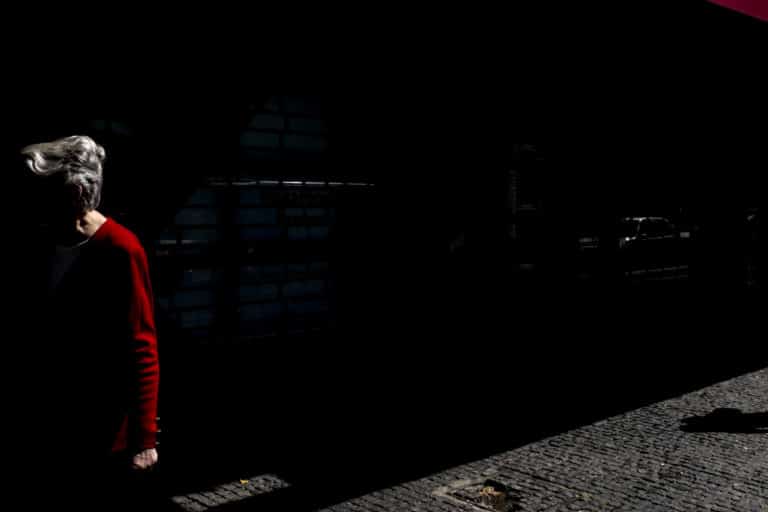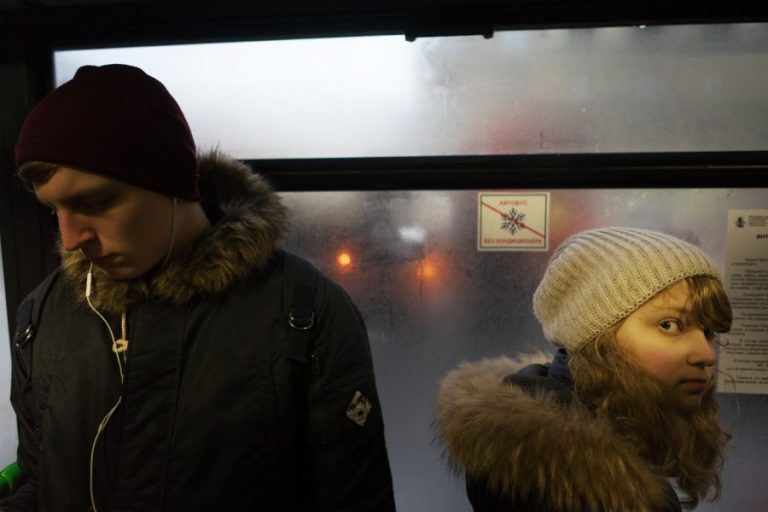
Image by Vieira da Silva/Flickr (CC BY-NC-ND 2.0)..
When Fear Arises
I spent this week at a conference titled “Fear and Trust in Self and Society” put on by the Mind and Life Institute. If I were going to try to single out the most predominant historical obstacle to my feeling truly happy, I’d say it is fear. We all know some variant of those long lists of potential hazards to our deeper happiness, those habits that can arise (sometimes again and again) and seem to take over: craving, sloth, anger, jealousy, conceit… and many more.
It’s not that I am immune from each of the others. Most of us observe a medley of these states as we practice introspection. But, I’d say fear has probably been the dominant note played, certainly in my earlier life.
Not that fear is necessarily all bad. It can be a tremendous motivating force to not stay stuck. Fear can galvanize us to search for new and creative solutions to whatever we are facing — to demand that we get up and get going and tell us we must find allies and friends instead of thinking we can just go it alone.
When we get enveloped in fear, though, a more overwhelming state of apprehension shapes our choices, challenges our relationships, and becomes a fairly steady state that keeps us from trying to work out solutions to our various dilemmas. It becomes toxic.
Fear also isn’t an easy feeling to allow, to take some time with, to face with clarity and compassion. I wonder sometimes how much destructive action takes place because we find we can’t easily just sit and know we feel afraid. To avoid the feeling, we reach for anything that will give us a sense of power, however fleeting the sense of power — and however destructive the act. This has great implications not just for our personal lives, but for the societies we create and maintain.
Of course my relationship to fear has changed tremendously through the years. One of the definitions of mindfulness is being able to see the distinction between what is actually happening and what we tend to add to it. Maybe fear is what’s actually happening, and we add shame, or blame, or anger at ourselves, or a sense of helplessness, or identification (“This is all I will ever feel. This will last forever. This is who I really am.”) to it. That’s a pretty toxic brew. Coming back to just acknowledging the fear allows us to take a closer look at it.
One of the interesting things I’ve discovered about my own fear is that, despite the common aphorism that we are afraid of the unknown, by and large that’s not when I feel afraid. By looking directly at my fear without adding a whole bunch of stuff, I’ve seen that, while I certainly can be afraid of the unknown, I’m mostly afraid when I think I do know and it’s going to be really bad. It’s the stories I tell myself that intensify and extend the fear. When I remind myself that actually I don’t know how something will end up, I feel a sense of space, “Hey, I don’t know.”
It’s a great relief. It’s a tool I use if I feel fear arising, and it’s quite effective. If I remember to let go of the stories and the add-ons, and hang out with what’s happening, there’s spaciousness there. And there’s peace there, even in the presence of fear.


Share your reflection